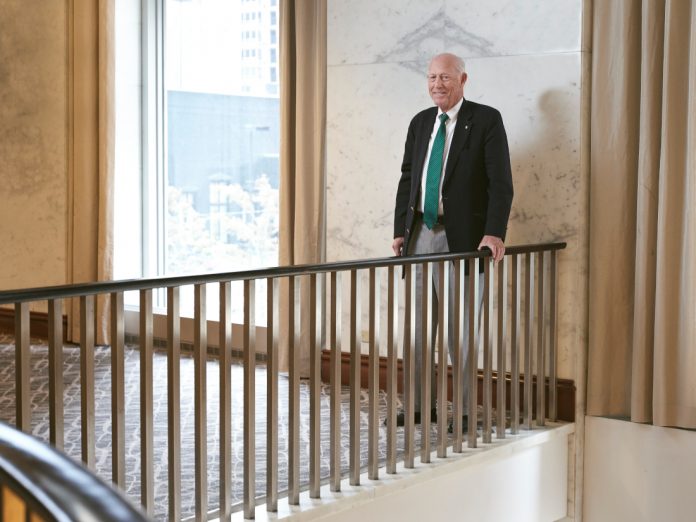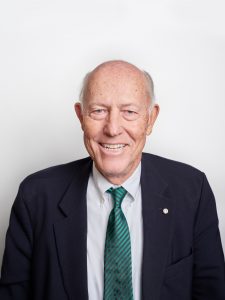
Luis Vela Looks Back on his 40-plus Years in the Manufactured Housing Industry
Luis Vela retired for 18 months.
“I had been running the midwest real estate office for PNC Bank. I was supposed to retire at 67 and worked until 72,” Vela said. “One day I realized it just wasn’t for me. People who retire need a big hobby, like rebuilding MGs or building something. And I don’t have that.
“I’m a deal junky,” he said.
Born on the Road
Maybe part of the reason Vela has business deals in his blood is that he was born on a business trip – in South America.
His father, Walter A. Vela, worked for Sunoco, then known as Sun Oil, in charge of marketing, and then with General Motors, in the capacity as director to the Latin American Free Trade Association (LAFTA).
“We went from Rio to San Paulo, to Buenos Aires to Lima, to Caracas and many other equatorial locales all prior to the age of 13,” Vela said. “We’d move every three to six months.”
Education, Army, and Wall Street
In the United States by high school, Vela was a Champion singles tennis player and played varsity tennis at Michigan State University for 1954 through ’58, where he earned his bachelor’s degree in general business and economics. Next, he went to graduate school at Columbia University in New York City where he earned a master’s degree in finance. He also was in the Reserve Officers’ Training Corps (ROTC), and joined the U.S. Army as a 2nd lieutenant.
Vela trained at Fort Campbell in Kentucky and transferred from the infantry to the Finance Corps in Indianapolis. It’s a place many of the enlisted call “the little Pentagon”.
Vela later was promoted to a 1st lieutenant.
“We wrote all the payroll for the Army. We also could write up to seven checks a month for each soldier… house payment, car payment, insurance payments,” Vela said.
He worked on Wall Street for IBM, and was on the team that brought magnetic ink coding to checking accounts in the banking and finance industries.
“That’s my claim to fame,” Vela said with a smile.
“It was a lot of fun to work in New York City. There’s just a tempo there that’s unlike any other place.”
Coast to Coast
Vela moved west, to Sonoma, Calif., and served as the chief financial officer for Hy-Lond Enterprises, with 34 extended care nursing facilities throughout California, Idaho, Oregon, Utah, and Washington. However, in 1972 he was badly injured in a horseback riding accident.
He looked at the best options for his own rehabilitation care, and for a good place to recover, and decided to go to Florida. While there, Vela began work with American Community Systems as vice president of real estate in the development of Colonies at Margate, in Margate, Fla. He also worked with Intercoastal Communities with Ned Allen and Richard Kearns, as executive vice president and CFO.
“That’s how I got my start in MH,” Vela said. “We had seven MH retirement communities.”
“He has taught me a lot in finance. He’s a legend. He was doing deals when this industry was selling 500,000 homes.” — Community owner and friend John Rogosich
During this time, Vela worked huge deals with the Sun Communities, Inc. REIT, in obtaining a Fannie Mae Credit Facility.
“We started with $50 million and got it up to $392 million outstanding,” he said.
“We also did a whole bunch of mobile home parks in Arizona during the 1980s, in Tucson, Mesa, Apache Junction,” Vela said. “At one point, Phoenix had 80,000 park models, and it seems all of them were being bought by people coming down from Canada. These park models all had a certain kind of look. A lot of people would extend their park model with a screened porch.
“It was a good look.”
Vela then took the position of senior vice president of acquisitions with Chateau Properties, Inc., a newly formed public REIT. From there, Vela went on what many call “a rocket ride”.
“In my time, we grew the portfolio from 14,500 to 75,000 homes,” Vela said. “We were just behind Sam Zell’s MHC REIT, now called Equity LifeStyle Properties, in going public.
“That was November 17, 1993.”
At its height, Chateau was the largest manufactured home community owner in the country. It won Community Operator of the Year Awards from the Manufactured Housing Institute from 1994 through ’99.
The Green Tree Years
During his time with Green Tree Financial, Vela worked on providing loans for new parks, including construction loans and mezzanine and bridge real estate community expansion loans while serving as vice president of national community financing.
“That was running $8 to $10 billion per year,” Vela said. “But then the economy tanked. We were in 2007, 2008 and were looking for a way to wade through.”
The answer, it seemed, was a merger with Conseco Inc., of Alpharetta, Ga.
Green Tree merged with Conseco, a publicly held insurance company based in Indiana and traded on the New York Stock Exchange.
“We thought if we could get each of these two large, public ‘middle-income customer’ organizations together that we would be successful and get to the other side,” he said. “It didn’t work.”
At the time, Green Tree became the fifth largest corporate bankruptcy in U.S. history, right after Enron.
“Some of the finance and business books still blame us for the 2007 to 2009 sub-prime recession,” Vela said.
Q10 National Production (2018)
- Loan origination – $4.6 billion
- Servicing volume – $9.9 billion
- Locations – eight member companies, with 14 offices in 12 states
At Home in Naples

Vela now resides in Naples, Fla., continues his work with Q10 Lutz Financial Services, and is a licensed mortgage and real estate broker in the state of Florida.
His son is Luis R. Vela is an orthopedic surgeon and serves as Oregon State University baseball’s team physician. He has a pair of daughters, Meg, in Denver, a graduate of the University of Denver, with a 19-year-old daughter and 18-year-old twin boys, and daughter Dodie, in Orlando, who went to Auburn University and works in the wellness field.
Vela’s wife Lynne is a former flight attendant who worked as an actor in TV commercials.
Q10 Capital, the parent company to Q10 Lutz, is among the nation’s largest servicer of commercial loans, totaling $4.6 billion in loans in 2018. Vela serves as vice president. Q10 does most of its volume in multi-family financing, with a presence in retail, office, industrial. The manufactured housing assets make up about 6% of Q10’s volume.
“We represent nearly all of the major insurance companies, large national and regional banks, and CMBS lenders,” Vela said. “Q10 Capital does about $55 billion annually in commercial loan originations.
“I’m not restricted to lending in one region, so that’s very good,” Vela said. “If I meet someone who needs help, no matter where they are based, I can help them.”









